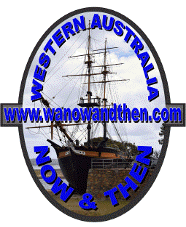|
|
|||
|
|
|
|
|
|
|
|||
ALCOHOL
|
|
|
|
|
|
WE NEED YOUR SUPPORT. |
|
|
|
|
Alcohol has always played a large role in Australian society but due to its addictive nature and the fact that it often gets over used, it has not, on the whole, been a positive influence. The colony was barely six months old when on January 1st 1830, the governing authorities issued the first 7 hotel licenses.
Prior to this there had been an unofficial trade done from private homes. The government quickly realised that licensing hotels would be an ongoing source of income. Fines of 50 pounds were introduced for anyone selling alcohol without a license and closing time was set at 10pm, 7 days a week!
Hoteliers were banned from trading alcohol for produce. On the other hand employers were allowed to pay servants in both rations and grog and by 1833, one third of a servant's wage could be paid out in alcohol. The government charged tax on imported liquor and employers could easily over-value what was given to servants. Servants, on the other hand, could be imprisoned for drunkenness and temperance was encouraged. Double standards were obviously as common back then as they are today.
Initially hotels were little more than tents but this changed quickly with regulation as a premises could not be licensed unless it had a public sitting room, a public sleeping room and separate accommodation for the licensee and his family. There was a 10 pound fine for not supplying 'reasonable lodging and refreshment to any traveller'. There also had to be a lantern burning over the entrance door from sunset to sunrise.
As new settlements developed and roads were established, wayside inns became common and were essential both for travellers and often for the survival of the farmers who operated them.
By 1839 employers could no longer supply spirits as part of a servant's wage. They could, however, supply wine and beer. Sunday trading was banned in the same year and huge fines of between 100-400 pounds were set for anyone producing distilled spirits.
Taxes from spirit alcohol sales and license fees were the biggest earner for the government and by 1855 it was making 12,200 pounds a year.
At one time, beer was used almost as a replacement for water. Water sources were so poor in quality that weak beer was often a safer option to drink.
Right from the early days alcohol has caused problems in society with employers blaming the availability of intoxicating liquor for the poor behaviour of workers.
Originally beer and spirits were the drinks of choice in W.A. but the emergence of the wine industry introduced a greater range of ways to get a hang over.
In 1906 the visiting Italian Consul L. Zunini wrote the following :
'Although it is difficult for us Europeans to understand why there are so many hotels, it is explicable when one considers the enormous amount of alcohol consumed in Australia, and particularly in Western Australia.'
'In Australia, for those of you who do not know, the drunkard enjoys universal attention and respect, something akin to that of the insane in Moslem countries.'
There has never been any attempt at prohibition (at least not for European Australians) in W.A. but Aboriginal people were found to be especially at risk from the effects
of this drug and were originally banned from purchasing it. Eventually this restriction was lifted and the consequences for Aborigines have been devastating.
Today alcohol is still responsible for a great many social problems and many road deaths in car crashes are related directly to the consumption of alcohol. The official legal blood alcohol limit in W.A. is 0.05 but we feel it would be better to have a ZERO blood alcohol limit when driving a vehicle.
Like smoking, alcohol causes a great raft of problems in society but governments seem so addicted to the revenue they get from these products that they never do anything but mop up after the tragedies occur.
Unlike tobacco, it is possible to use alcohol in moderation and not only enjoy it but to get some direct health benefits from it. Sadly too many people abuse drugs like this and as a society we seem to be stuck with the misery and harm that results.
The Responsible Service of Alcohol
Bar staff in Western Australia must be trained in the responsible service of Alcohol. Anyone wanting to work in an industry where serving of alcohol is part of the job should be aware they they must complete a course before they can be employed. For more details you can refer to the Dept. Of Racing, Gaming and Liquor document Mandatory Training.
|
|
Become a supporter of this website for just $5 a month
|






